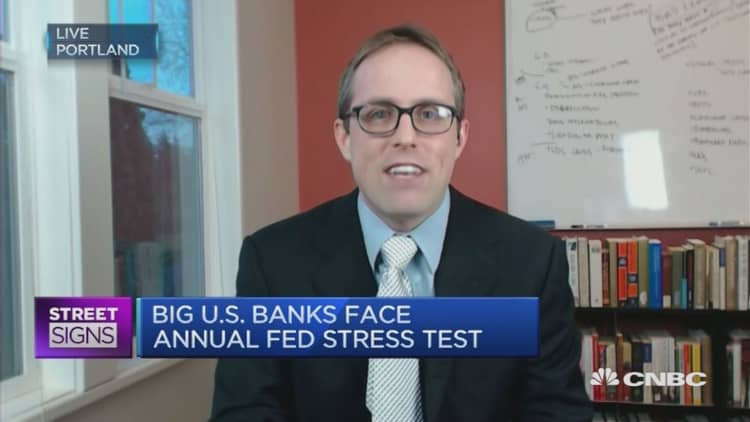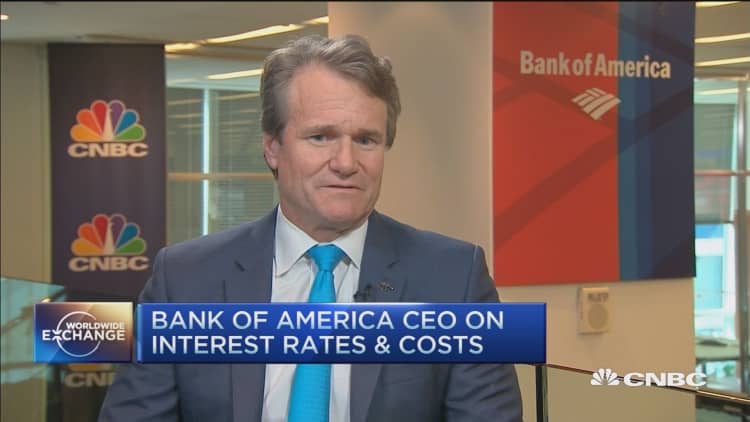
Wall Street banks are awaiting the announcement of regulatory stress test results expected later this month with bated breath. But their investors are waiting with their wallets open.
After the Federal Reserve's Comprehensive Capital Analysis and Review test results are announced, Fitch Ratings analysts think that "credit card banks" may fare best. In the prior four years, the banks with the largest credit card businesses performed better in regulatory exams as a group, analysts noted.
And this could lead to billions in payouts for banks' investors, Fitch said. Capital requests, or what banks ask regulators for permission to pay out to investors, are set to rise this month via the stress tests because most banks will score passing grades with the Fed, according to Fitch.
"Banks have become more comfortable with the process and creative with their capital requests," the analysts wrote.
Stress tests — regulatory exams which Wall Street and international banks are required to face as part of post-crisis industry reform — also determine how much stock banks can buy back from shareholders, and the size of the dividend they're allowed to cut to investors.
Read MoreWall Street can breathe easy... for now
After some bank investors pressed unsuccessfully at shareholder meetings to break up banks or curb executive pay, passing stress tests and distributing capital might be a welcome reprieve for Wall Street executives who have struggled to offset unnaturally low interest rates. Even banks' ability to distribute capital to investors must be approved by regulators.
"Many investors are well aware, the banks still have handcuffs on, in terms of what they can distribute," said Nathan Flanders, managing director covering non-bank financial institutions with Fitch.

And that especially applies to international banks that operate on Wall Street. The report notes that foreign-banks, which are not as experienced with the regulatory exams, have received objections to capital plans, stalling payouts to investors.
Read MoreNegative interest would test banks' creativity
Wall Street firms are also under tougher standards, as evidenced by the Fed now requiring banks to model negative interest rates into their stress tests.
"The regulators have heightened expectations for big banks," said Julie Solar, senior director covering financial institutions with Fitch.
As long as banks pass their tests, their investors can increase expectations as well.


